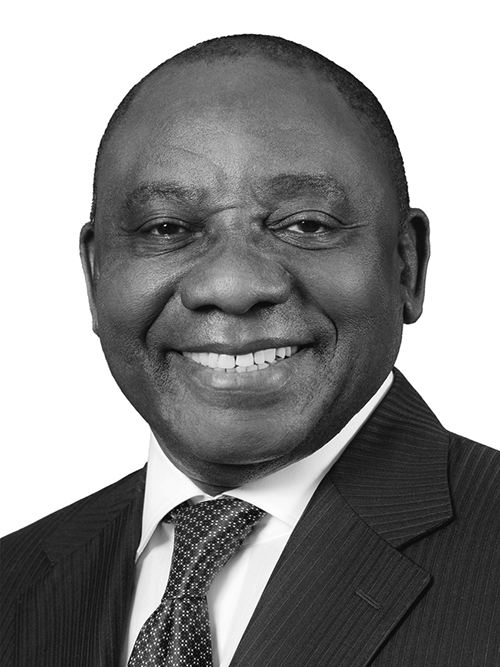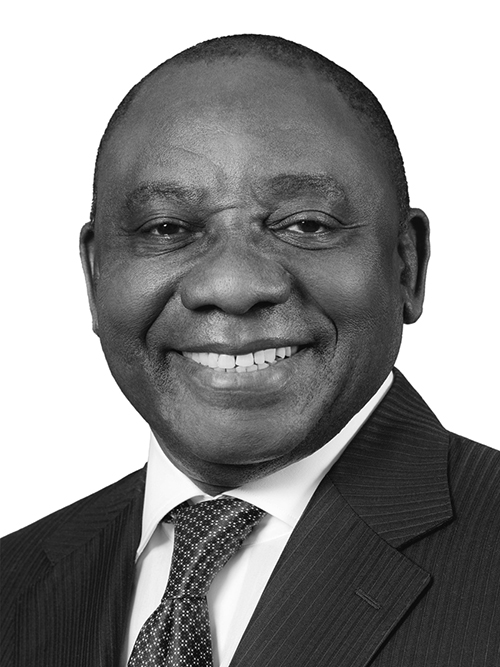Honourable Chair of the session,
Minister in The Presidency, Honourable Ntshavheni,
Honourable Members of the House,
Distinguished guests joining us virtually and physically,
Fellow South Africans;
It is my honour to support the Minister in The Presidency, Ms Khumbudzo Ntshavheni, on presenting the budget of Statistics South Africa, popularly known as Stats SA today.
I must state that this debate is my maiden speech as a Member of Parliament. Let me therefore take this opportunity to congratulate all members representing the people of South Africa in this 7th Parliament as we work collectively as legislators and the Executive for a united and prosperous South Africa.
Honourable Members, as we enter the unchartered waters of a Government of National Unity comprising of Seven Political Parties 30 years into our democratic dispensation, there is absolutely no way we can talk about democracy without Stats SA being an integral part thereof. Our story as Stats SA dates as far back as 1996 when Stats SA conducted the first census to quench the data thirst that our nation needed for its establishment and survival, for which we are grateful that we are now three decades in the making. When we talk about Stats SA, we are talking about a well-oiled machinery who over the past 30 years continued to inform the nation and will continue to do so in the Government of National Unity. This is indicative of an institution that is functional, independent and revered as one of the best in the world.
Honourable Chairperson,
Upholding the independence of Stats SA is of paramount importance. The independence of our national statistics office must be protected at all costs so that official statistics remain free from any interference on statistical methods, content and timing of statistical releases. This is guaranteed in the Statistics Act (6 of 1999). Such independence ensures that our official numbers have integrity and can be trusted by all. The demand for data and statistics are increasing in all aspects of life. Data has become a major resource globally, offering enormous opportunities for citizens, businesses and governments to make better informed decisions. The world now increasingly relies on data to create new knowledge and insights to better understand the past, the current and to predict the future.
Stats SA is a critical institution in the life of our developmental state in the making. Some of the key products that are used by both the private and public sectors include:
o The Consumer Price Index (CPI) and Gross Domestic Product (GDP), published monthly and quarterly respectively, used by the private and public sectors as well as our ordinary citizens.
o Statistics on poverty, inequality, employment and unemployment that are published by Stats SA equally assist us as policy makers to ensure we address the past imbalances that continue to affect the previously disadvantaged particularly the black African woman who still remains the fact of poverty in South Africa.
Honourable members,
- The year 2024/25 will be the year when the world operates in a transformed digital space. Our vision of ‘Improving lives through data ecosystems’ remains our true loadstar. When all is said and done, data and statistics will tell the story whether the lives of our people have been affected by our policy programmes and decisions.
- As we propel towards this future, it is our mission to evolve the production, coordination and use of statistics through optimisation, partnerships and innovation.
- Collaboration between Stats SA, other organs of state and the private sector is therefore critical as we build the data ecosystem for South Africa. This is evidenced by collaboration and partnerships that were established with key stakeholders such as the South African Revenue Service (SARS), the Department of Home Affairs and Institutions of Higher Learning, to mention a few. The use and appreciation of official statistics in decision-making has become even more critical in the changing data landscape.
Honourable Chairperson, let me come to the operating model of Stats SA.
- The operating model within Stats SA is being reviewed and adapted to fit the needs of an evolving society. Stats SA will continue to deploy and integrate innovative methodologies that were developed over the past years into the operating model. Most importantly, the investment in technology to modernise the statistics value chain will continue to increase our efficiency.
Honourable members, in relation to the strategic priorities,
- Our highest priority as Stats SA is about sustaining and protecting the quality of official statistics and national indicators. Our national statistics agency is committed to continue to deliver its suite of official statistics even amidst a challenging and declining resource environment.
- Stats SA has adopted a change agenda with the strategic goals of –
o harnessing alternative data sources to augment official statistics in the future;
o transforming the skills set and investing in new capabilities such as data science and data analytics;
o creating an agile operating model by modernising and digitalising the statistical value chain to unearth smarter and more sustainable ways to operate; and
o leveraging innovative technologies and methodologies as a building-block for an interconnected statistical system for the entire data ecosystem.
Stats SA should create change that matters, enabled by technology and sustained through capabilities.
Honourable Chairperson,
We are very mindful of the projected budget shortfall attributable to public sector cost of living adjustment (COLA) increases which Stats SA had to absorb. This means that Stats SA’s Compensation of Employees (COE) budget is less than the cost of its filled staff, i.e. warm bodies. Stats SA has to therefore rely on normal staff attrition and retirements savings to fund the filling of critical vacancies.
Whilst National Treasury acknowledges this serious challenge, Stats SA will be considering alternative funding models to limit the potential risk it SA faces to maintain the quality of statistics produced.
As we acknowledge the time of opportunity, let us make sure that we propel ahead, the future requires a culture of innovation, agility and collective leadership that embraces change and diversity in thought and practice. Let us give the necessary support to the Statistician-General, Mr Risenga Maluleke, and the entire workforce of Stats SA. Let us also appreciate the role of the newly appointed South African Statistics Council, under the leadership of Dr. Nompumelelo Nzimande-Mbele, that continues to play their role in safeguarding our official statistics.
Thank you.









